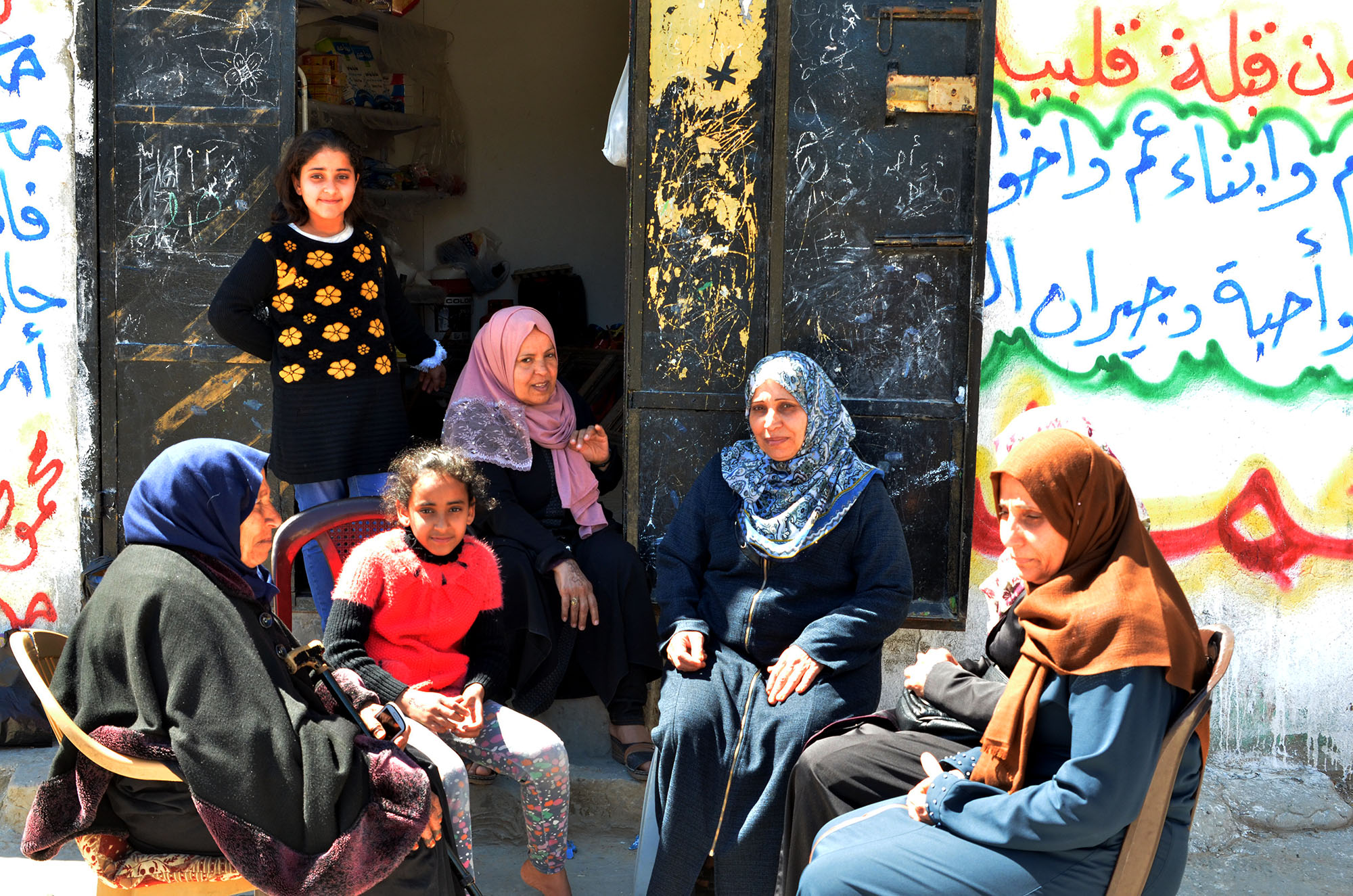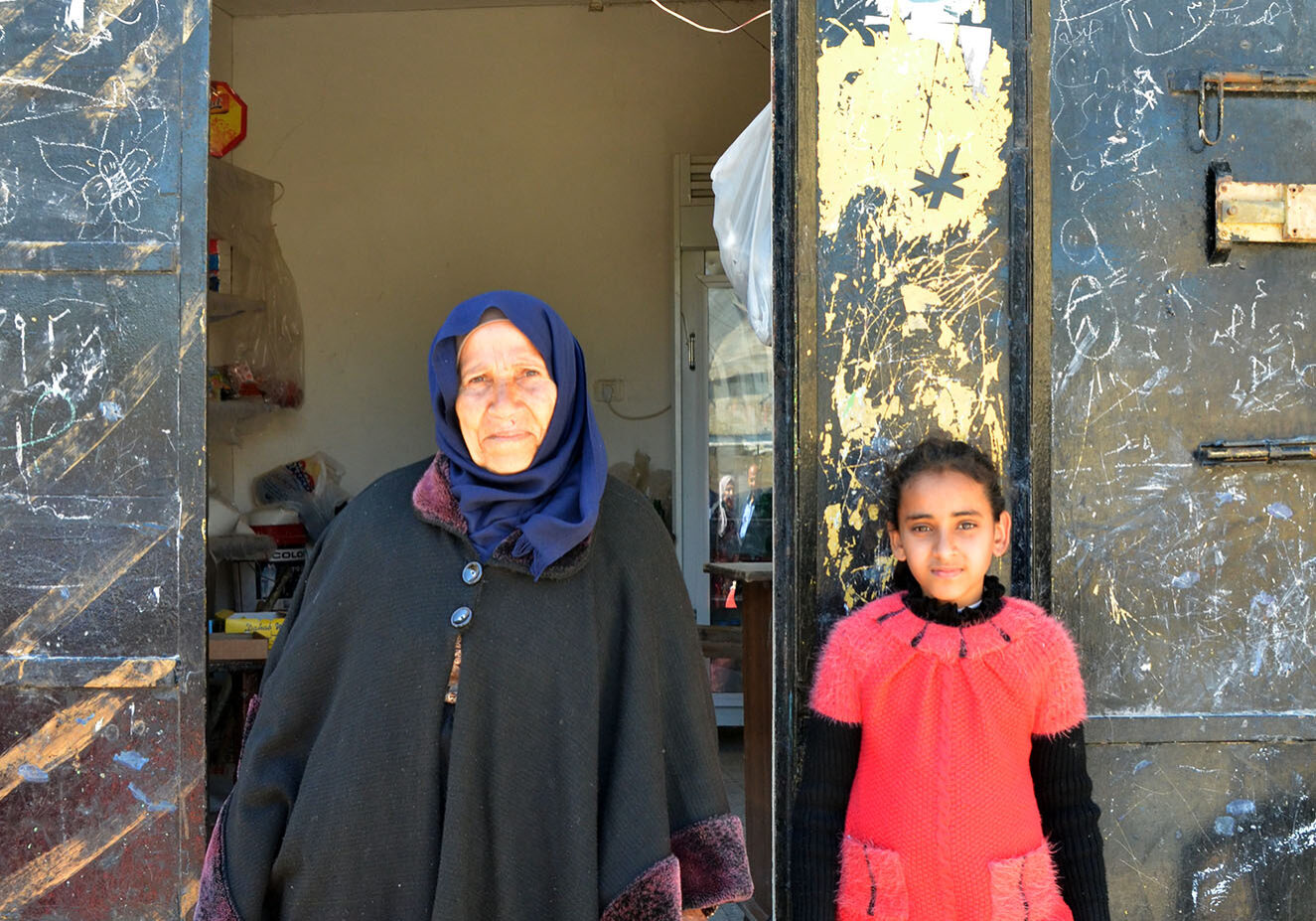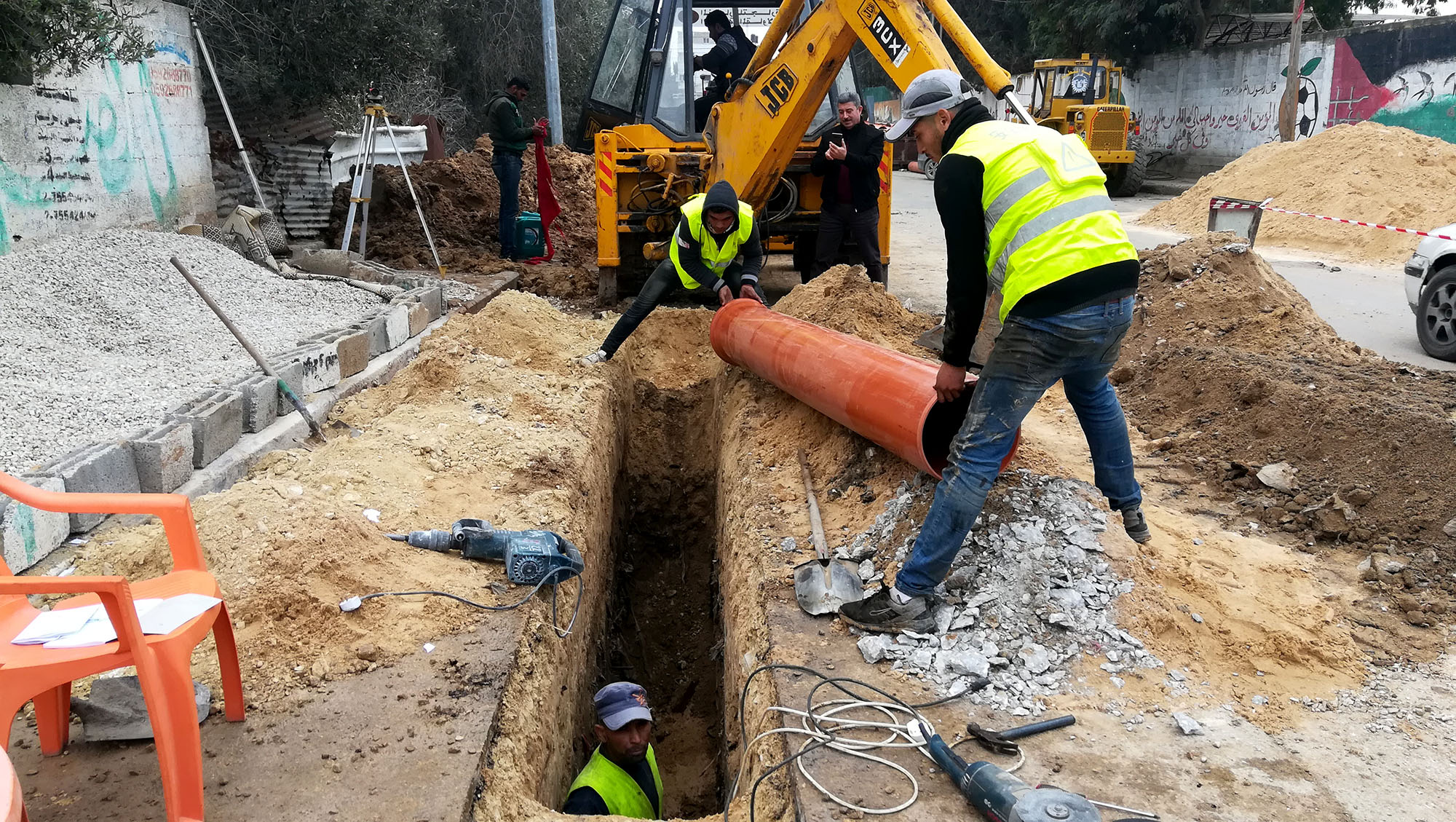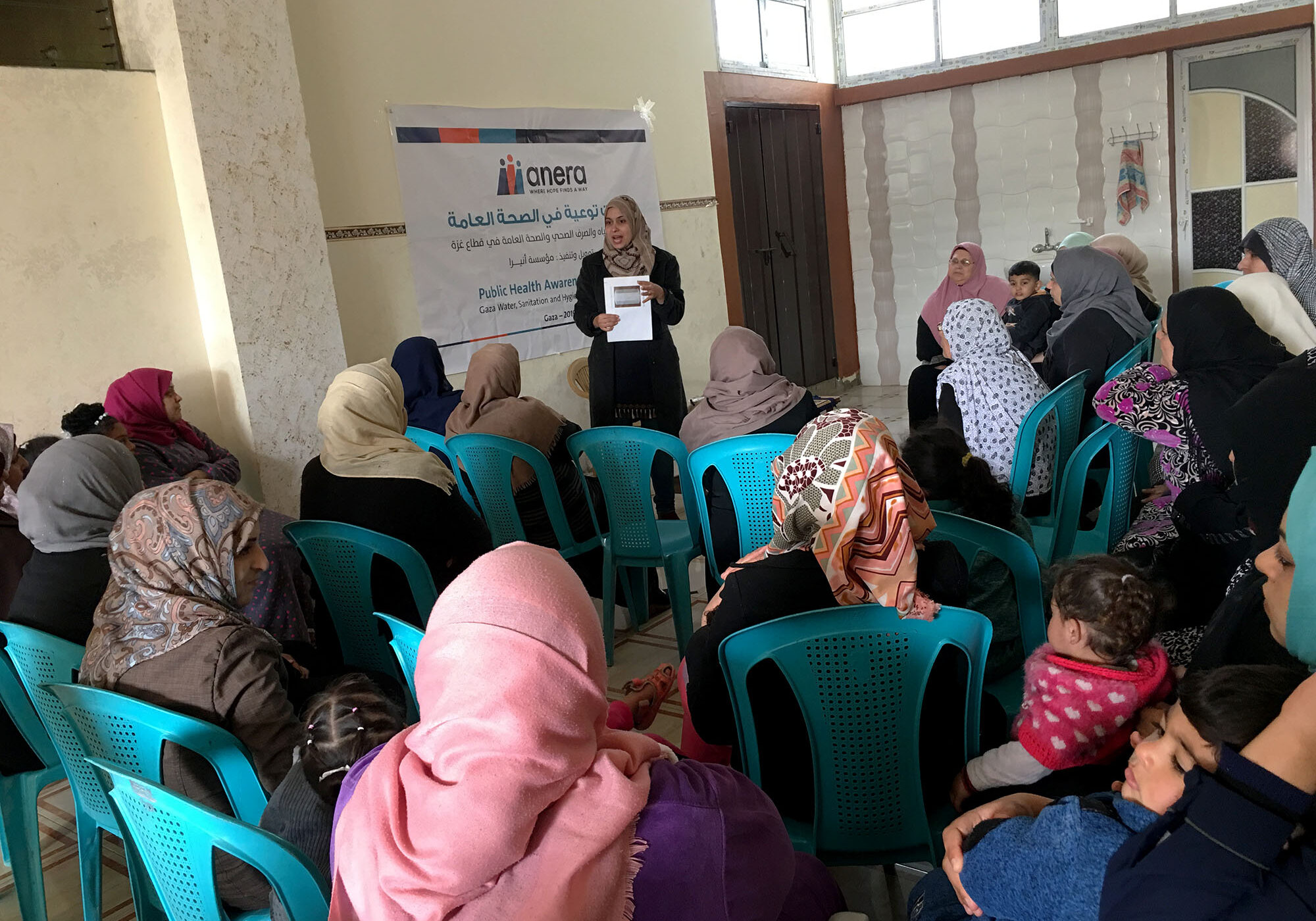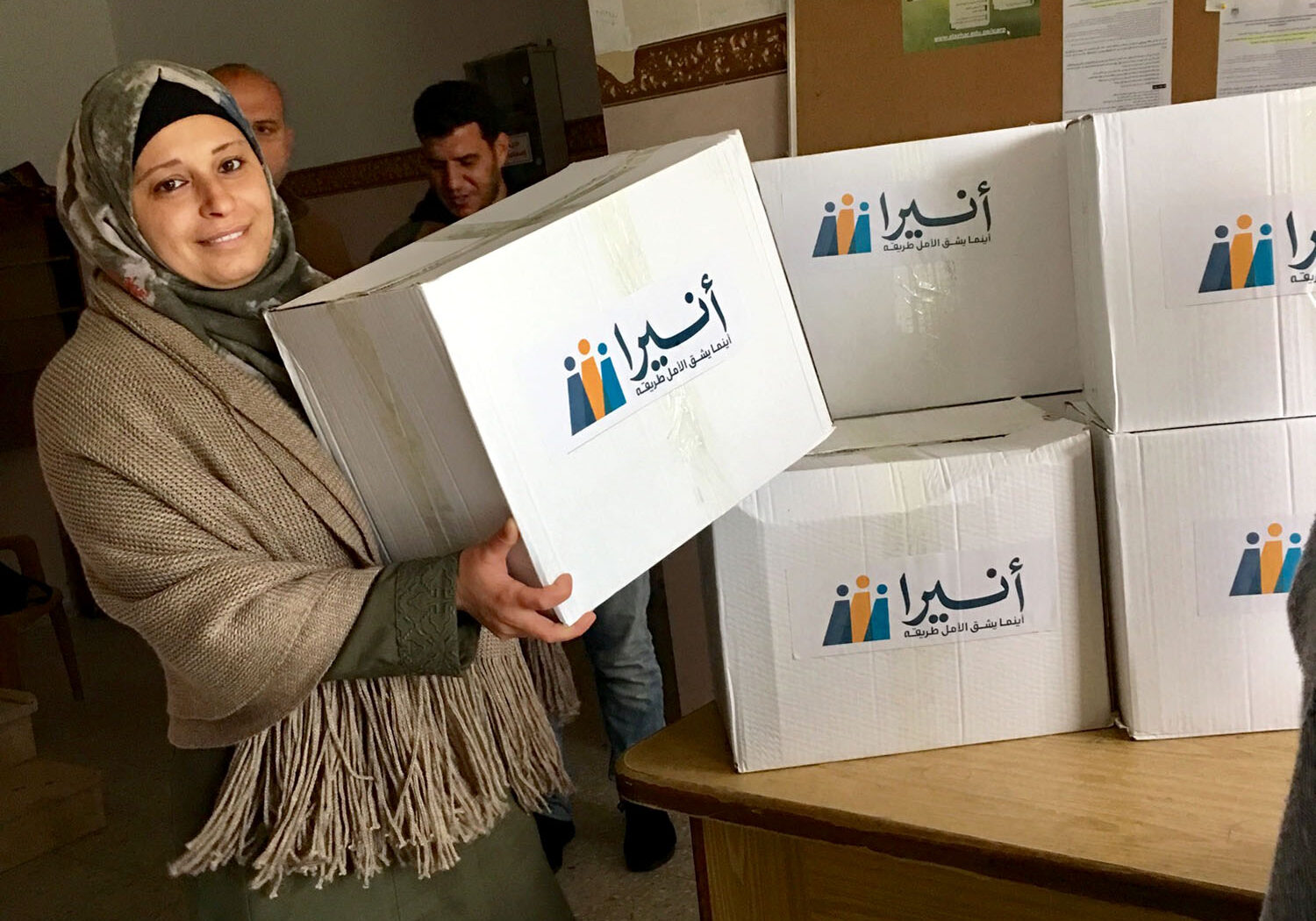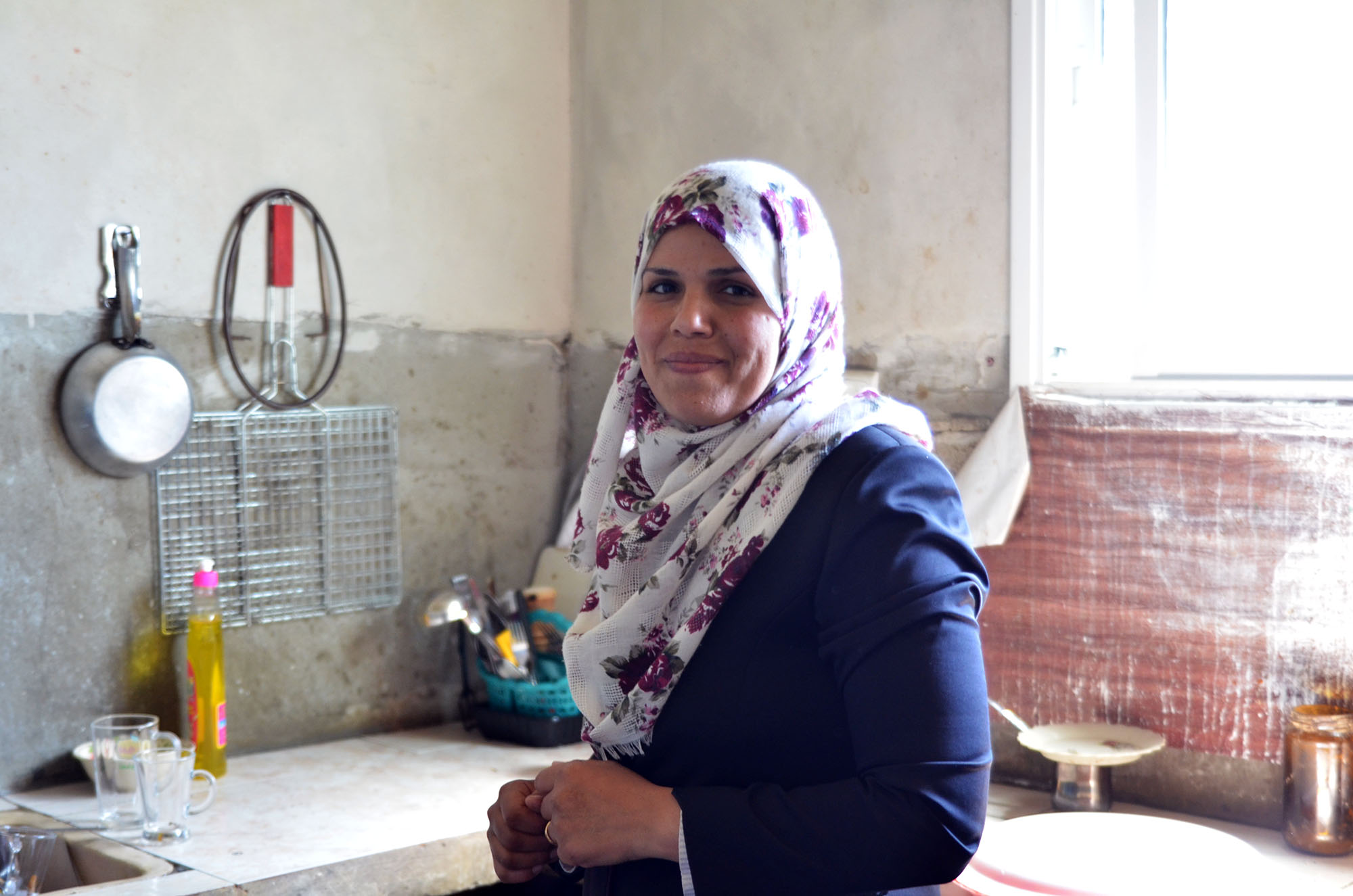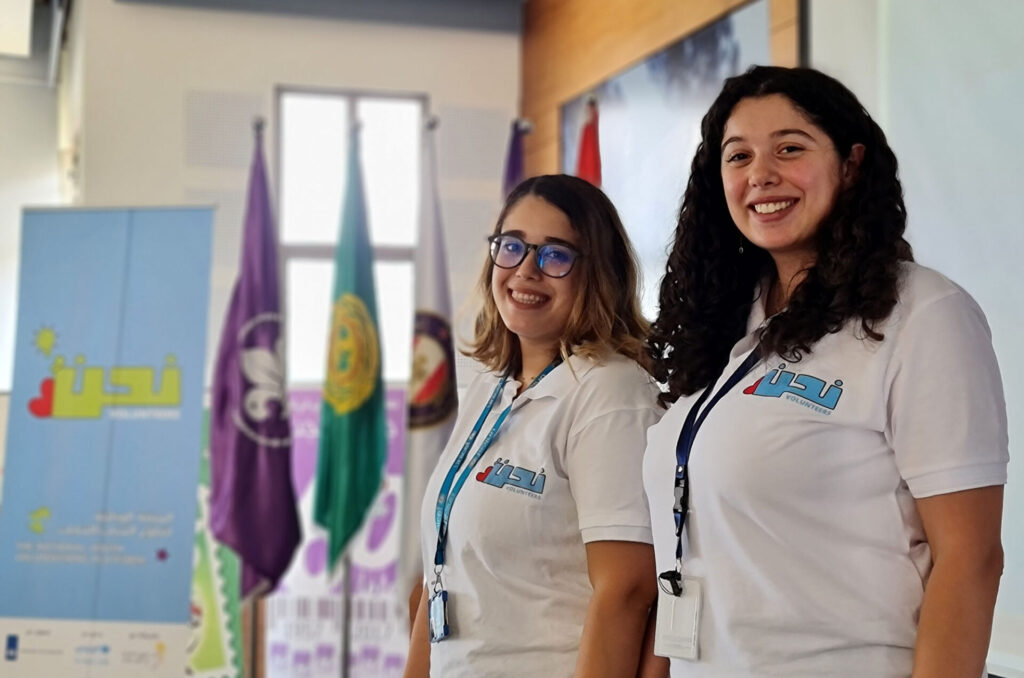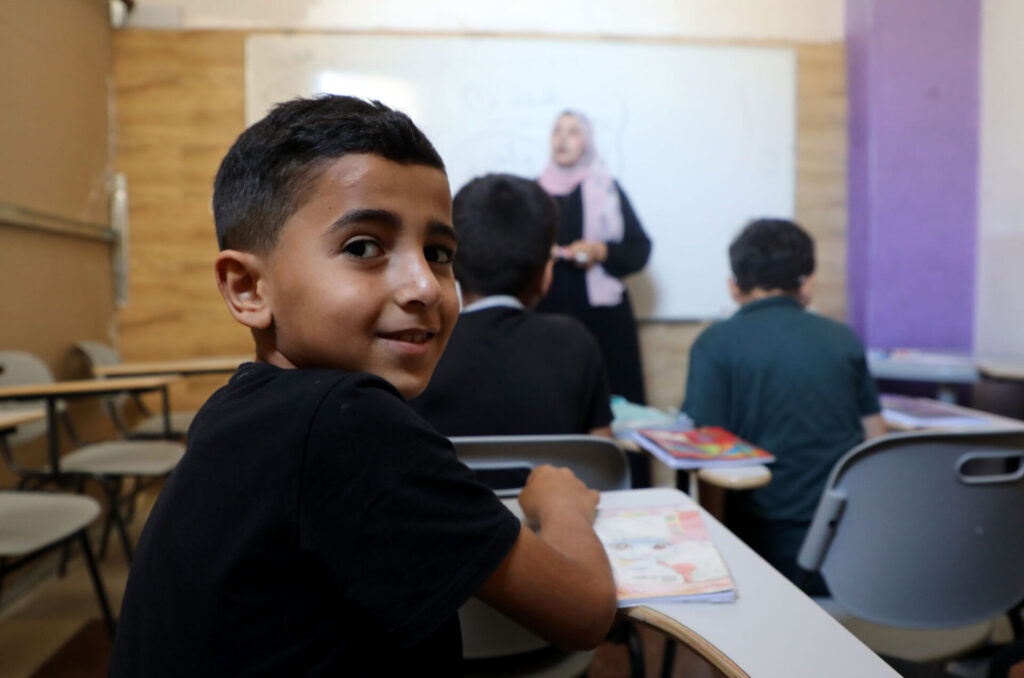WATER
Storm Water Project in Gaza Brings Relief from Flooding
Apr, 2019
Anera recently completed the installation of storm water networks in Beit Hanoun and Gaza City to prevent the flooding of homes, businesses and streets.
On a warm sunny day in Beit Hanoun, Gaza, a circle of children, teens and women gather to socialize next to Haja Suhaila’s small convenience shop. The group greets newcomers with welcoming smiles. Cold juice and soda are served.
Until recently, gathering to sit and talk like this was impossible after a rain. “The flooding was horrible. When it rained, water could reach all the way up to first floor apartments and would block the street. When it floods we're stuck inside,” Haja Suhaila said.
Storm Water Project Improves Drainage to Prevent Flooding in Beit Hanoun
At one time, storm water in Beit Hanoun drained into surrounding agricultural fields and open sandy lands. But rapid urbanization and the expansion of many urban communities meant rain water had fewer drainage points. Over the years the situation had gotten progressively worse.
“Students and workers couldn’t reach their schools or businesses. It totally paralyzed our lives,” said another woman in the group. “We used to get into arguments with our neighbors. Our kids would end up soaked in dirty water, and this lead to infections and diseases,” she says.
Residents would be confronted with muddy streets and sidewalks after every heavy rainfall. The wind would even carry sewage and garbage into houses. Following storms, Haja Suhaila says, “We would all go into the streets to clean up the area, collecting garbage, sweeping mud away, and hauling the muck into the drainage system.”
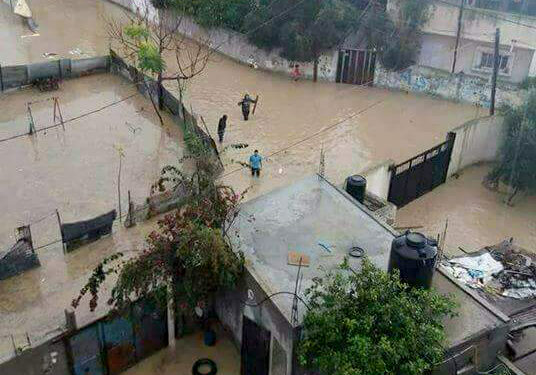

One time, the water rose all the way up to Haja Suhaila’s shop. She first opened her store fifteen years ago. “I decided to start the shop to fill my free time,” she recalls. “The water has ruined some of my products and makes the road slippery,” she says. “It’s worse when the water turns a dark color. That is always a bad sign,” she says, as it indicates the stagnant water is heavily polluted.
Flooding during the winter rainy season has become a more pronounced problem in Gaza in recent years. Existing flood water drainage systems were often poorly designed or absent entirely. Local authorities lacked funds to rehabilitate or construct new drainage systems. Storm water sometimes flooded water and wastewater systems, creating serious health hazards to local communities.
The situation required an urgent intervention. In response, last year Anera installed or upgraded storm water networks in Beit Hanoun and Gaza City. The improvements targeted flood prone areas, constructing new storm water networks, improving the efficiency of existing storm water systems, and, working in partnership with the local Cooperative Agricultural Association in Beit Hanoun, educating community members on the best sanitation practices and how to prevent waterborne diseases.
Farah is also a mother in the neighborhood. She says that before the storm water project, her children would stay at home after heavy rains, sometimes missing school for three or four days. Her daughter, Hala, once missed an exam due to the pooled rainwater in the streets. And her husband, who is paid a daily wage, once had to forgo income for three days because of the flooding. Farah says many families in the neighborhood have similar stories.
As part of the storm water project, Anera provided free public health education sessions to local residents.
Farah lists all the best practices she learned at the session she attended. The course covered topics ranging from treating parasitic infections in children, to how to keep her water tank clean. (Residential water tanks are ubiquitous due to the chronic problems accessing potable water in Gaza, but can themselves become contaminated with bacterial blooms.)
Among the practices Farah gleaned from the course, “A vinegar solution is an effective way to clean vegetables to remove bacteria," she says. "And now, we separate the laundry. The clothes of infected children are kept apart from other laundry, so we don’t spread the infection.”
Short-term Employment Opportunities in Gaza
Anera’s storm water project created short-term work opportunities for survey data collectors like Ibtisam. A Beit Hanoun native and mother of six, she collected biographical information from local residents who benefited from the project. Although she has a bachelor’s degree in geology, Ibtisam was never able to find full time work in Gaza, where unemployment rates are high.
”Through this project I was able to put some of my skills into practice,” she says. “Because I live in this area and am a well-known face, I was able to make the survey process much easier.”
Anera’s intervention was relatively small but it had a big impact, protecting affected communities suffering from flooding. The storm water project has been “a lifesaver,” according to Um Ayman, another local resident. “It has rained twice since the project finished, and the water receded quickly.”
Anera was able to complete the installation and maintenance of storm water networks in Beit Hanoun and Gaza City through an urgent Gaza WASH project. At the flood-prone Al Ajooz area in Beit Hanoun, Anera constructed a new 14 inch storm water pipe, with manholes and gullies for the collection of the accumulated storm water. In Gaza City, Anera cleaned and repaired 1,800 storm water gullies in 15 neighborhoods, removing sand and debris that cause blockages and flooding. In conjunction with the infrastructure improvements, Anera conducted twelve public health awareness sessions and delivered hygiene kits. Anera estimates that 100 families (564 residents) in Beit Hanoun and at least 100,000 families in Gaza City have benefited from the program.

